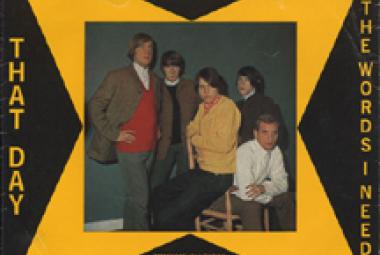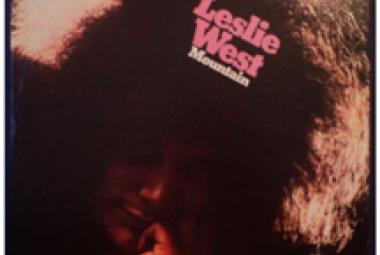Paul McCartney (born 18 June 1942) is an English singer-songwriter, multi-instrumentalist, and composer. He gained worldwide fame as a member of the Beatles, one of the most popular and influential acts in the history of rock music; his songwriting partnership with John Lennon is one of the most celebrated of the 20th century. After the band’s break-up, he pursued a solo career and formed Wings with his first wife, Linda, and Denny Laine. More than 2,200 artists have covered his Beatles song “Yesterday”, more than any other copyrighted song in history. Wings’ 1977 release “Mull of Kintyre” is one of the all-time best-selling singles in the UK. McCartney has written, or co-written 32 songs that have reached number one on the Billboard Hot 100. McCartney has released an extensive catalogue of songs as a solo artist and has composed classical and electronic music. He has taken part in projects to promote international charities related to such subjects as animal rights, seal hunting, land mines, vegetarianism, poverty, and music education. (More from Wikipedia)
Both Paul McCartney and John Lennon have called Buddy Holly a primary influence on their work; Ian Whitcomb once said that “Buddy Holly and the Crickets had the most influence on the Beatles.” The Beatles did a lovely cover of “Words of Love” that was released in late 1964 on their album Beatles for Sale. During the recording sessions for the Let it Be album in January 1969, the Beatles recorded a slow version of “Mailman, Bring Me No More Blues” (a song popularized by Buddy Holly, though not written by him); the song was later released on Anthology 3. Also, John Lennon recorded a cover of “Peggy Sue” on his 1975 solo album Rock ’n’ Roll.
* * *
Little Richard started edging back into rock and roll in 1962; a European tour with Sam Cooke where he sang his gospel material was not well received, but crowds enthusiastically applauded his older songs like “Long Tall Sally”, a song that the Beatles recorded in full-blown Little Richard style in 1964, with Paul McCartney on lead vocals. The same year, Little Richard unapologetically returned to rock and roll and released “Bama Lama Bama Loo” in 1964; however, public tastes had changed, and he spent much of the 1960’s and 1970’s in what should have been unnecessary self-promotion.
(June 2013/1)
* * *
The Beatles performed a sort of mini-Wall of Sound at the close of their masterful Sgt. Pepper’s Lonely Hearts Club Band album, not long after Phil Spector came along. Following the second symphonic build-up within “A Day in the Life”, the orchestra swelled into a crescendo, and then there was a thunderous piano chord (an E-major chord to be exact). Many people who have been around a piano marvel at how long the instrument can hold a note; and here, the Beatles were dealing that expectation up in spades with a long, slow fade for nearly one full minute before the sound faded into background hiss.
Actually though, it wasn’t just one piano: John Lennon, Paul McCartney, Ringo Starr, and one of the Beatles’ roadies, Mal Evans were manning different pianos; while George Martin was playing the same chord on a harmonium. What’s more, the gain was gradually turned up as the chord faded in order to prolong the effect – at the end (they tell me), it is possible to hear background sounds in the recording studio: rustling papers, a squeaking chair, and the air conditioners.
* * *
After a few albums of (more or less) pure country, Linda Ronstadt perfected her sound when she connected with one of the top producers of the 1970’s, Peter Asher; he was also Ronstadt’s manager for several years. Peter Asher and Gordon Waller performed as Peter and Gordon, a British duo who enjoyed several years of success, particularly with their #1 hit in 1964, “A World Without Love”. The song was written by Paul McCartney but credited as Lennon/McCartney as was all of his music and that of John Lennon in the British Invasion period.
(October 2013)
* * *
Opposition to the unfair imprisonment of two women in Pussy Riot became a cause célèbre of many Western celebrities plus musicians from every genre imaginable: Bryan Adams, Beastie Boys, the Black Keys, John Cale, Peter Gabriel, Green Day, Nina Hagen, Kathleen Hanna, Paul McCartney, Moby, Yoko Ono, Pet Shop Boys, Red Hot Chili Peppers, Patti Smith, Sting, Pete Townshend, etc. Pussy Riot was featured on 60 Minutes as well.
For their part, the bandmembers in Pussy Riot that were not in prison distanced themselves from all of this attention and were quoted as saying: “We’re flattered, of course, that Madonna and Björk have offered to perform with us. But the only performances we’ll participate in are illegal ones. We refuse to perform as part of the capitalist system, at concerts where they sell tickets.”
(December 2013)
* * *
Paul McCartney has remarked on many occasions that “God Only Knows” is one of his very favorite songs; in a 1990 interview (from Wikipedia), he said of this song: “It’s a really, really great song – it’s a big favorite of mine. I was asked recently to give my top ten favorite songs for a Japanese radio station. . . . I didn’t think long and hard on it, but I popped that [“God Only Knows”] on the top of my list. [Thinks for a moment] It’s very deep. [Quotes the lyrics to “God Only Knows”] Very emotional, always a bit of a choker for me, that one. There are certain songs that just hit home with me, and they’re the strangest collection of songs . . . but that is high on the list, I must say.”
(October 2014)
* * *
In my judgment, the whole “backward masking” business is nonsense; what I have heard most of the time is the main vocal track played backwards, which seems to form other words. The best example that I know of is on “Revolution 9” by the Beatles, where the frequently repeated line “Number Nine” played backwards sounds like “Turn me on, dead man” (one of the many so-called “clues” that Paul McCartney was dead). It took me a while to hear that myself, since it actually sounds more like: “Tu-u-u-u-rn me ’n, d’d m’n”. It is obvious on its face though that there is no one on Earth who could hear “Number Nine” with one ear and “turn me on, dead man” with the other ear.
(November 2014)
* * *
Even considering that he is talking about his wife, Alain Johannes can hardly praise Natasha Shneider highly enough for her musical genius. In an interview that features technical talk which is a little beyond me (posted on ultimate-guitar.com), Alain Johannes was asked about Shneider’s essentially playing bass guitar on the keyboard with her left hand while playing regular keyboards with her right: “[P]eople would be watching us and she’d have the keyboard and I’d usually do a MIDI map of the two-and-a-half octaves and later on it became an Ovation Bass Station or the Wurlitzer. So that would feed into a bass amp and it was onstage and it was a huge sound with that Moog Bass in her left hand. She was so independent, she could sit in the pocket with Jack [Irons] and have a different pocket with the right hand, which was basically a second rhythm guitar and lead lines with me and then sing lead or harmonies as if there were three completely different grooves.”
Asked about specifically not wanting a bass guitarist, Alain Johannes continued: “Yeah, basically because her musical thinking on the bass was just so far beyond. Her mind was like [Paul] McCartney and if you listen to her bass lines, they have this contrapuntal and second melodic thing and the tension and release she creates against the chords are masterful. We were really into the energy of the three because Jack and I had known each other since we were 14 or 15, and Natasha and I were soulmates and at the time I was hoping lifelong partners.”
(April 2015/2)
* * *
Their second single was actually a Lennon/McCartney song, “I Wanna Be Your Man”; from Wikipedia: “According to various accounts, either the Rolling Stones’ manager/producer Andrew Loog Oldham or the Rolling Stones themselves ran into [John] Lennon and [Paul] McCartney on the street as the two were returning from an awards luncheon. Hearing that the band were in need of material for a single, Lennon and McCartney went to their session at De Lane Lea Studio and finished off the song – whose verse they had already been working on – in the corner of the room while the impressed Rolling Stones watched.”
John Lennon believes that their experience with “I Wanna Be Your Man” was helpful in getting the songwriting team underway; as he related in the famous Playboy magazine interview in 1980 (a few months before his assassination): “We were taken down to meet them at the club where they were playing in Richmond by Brian [Epstein] and some other guy. They wanted a song and we went to see what kind of stuff they did. Mick [Jagger] and Keith [Richards] heard we had an unfinished song – Paul [McCartney] just had this bit and we needed another verse or something. We sort of played it roughly to them and they said, ‘Yeah, OK, that’s our style.’ But it was only really a lick, so Paul and I went off in the corner of the room and finished the song off while they were all still sitting there talking. We came back, and that’s how Mick and Keith got inspired to write . . . because, ‘Jesus, look at that. They just went in the corner and wrote it and came back!’ You know, right in front of their eyes we did it. So we gave it to them.”
(May 2015)
* * *















